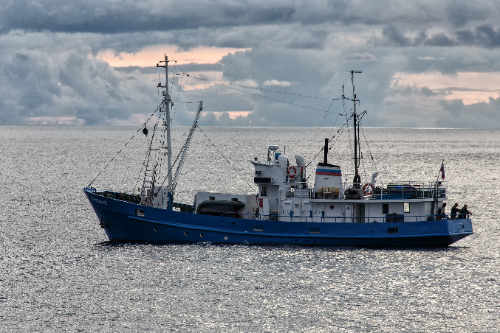In view of the anthropogenic impact on Lake Onego in the context of climate warming, it is necessary to continuously monitor its ecosystems. The main tasks within the integrated study were carried out by hydrobiologists and hydrochemists. During the trip, scientists visited 19 monitoring sites located in Petrozavodsk Bay, Lizhma Bay, Bolshoye Onego Bay, Central Onego, and the Kizhi Skerries. Special attention was paid to Kondopoga Bay, which is experiencing heavy pressure from the pulp and paper mill and trout farms.

Hydrophysical surveying
Researchers collected water samples for hydrochemical analysis, which estimates the amount of suspended solids, phosphorus, carbon dioxide, oxygen, heavy metals, oil products, and other indicators. Also, microbiological analysis of the samples will be performed: chlorophyll a, phyto- and zooplankton will be studied.
– We managed to fulfill all the planned work, including collecting so-called “first day samples,” which must be analyzed within 24 hours. To do this, the samples had to be sent to the laboratory by car immediately after collection, – informed Anastasiia Sidorova, Head of Hydrobiology Laboratory of the Northern Water Problems Institute KarRC RAS.

Sampling in process
The next stage of the study will be laboratory analysis of the rest of the samples and processing of the results.
Photos: Yulia Novikova / NWPI KarRC RAS




